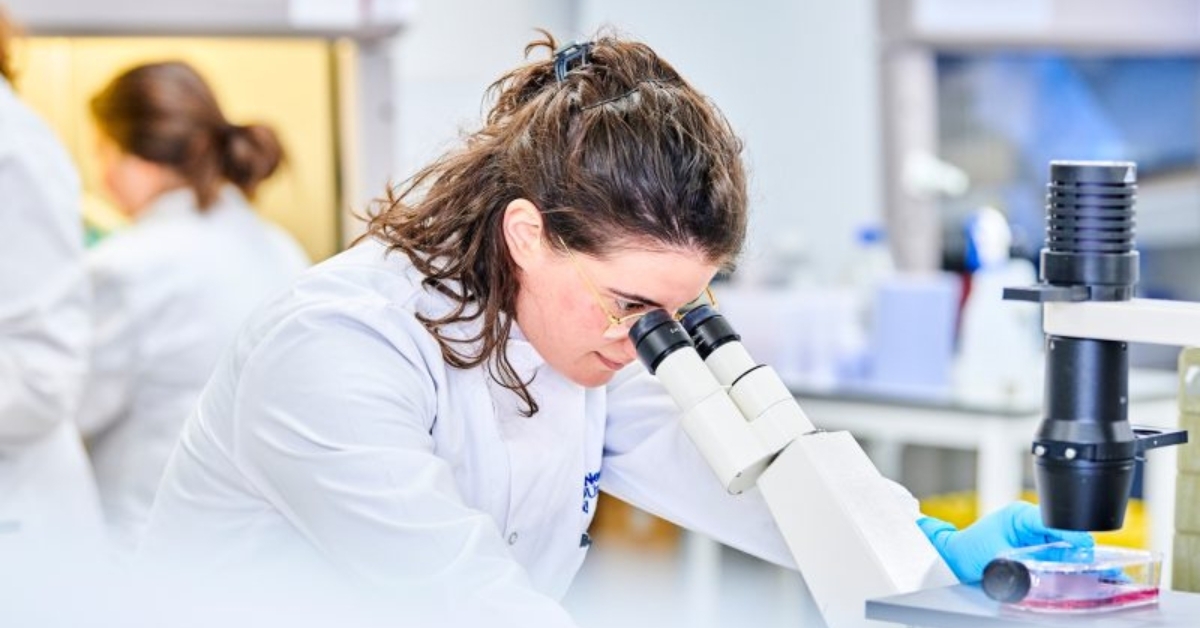How PINZ researchers are powering the future of Net Zero leadership
12 September 2025 | By: Olivia Elwood | 3 min read
The Process Industries Net Zero (PINZ) Centre for Doctoral Training brings together an innovative cohort of researchers, paving the way for Net Zero in manufacturing industries.
PINZ unites the expertise of the University of York and Newcastle University, working alongside industry partners to drive the seismic shifts in practice required to achieve Net Zero. Focused on solving real-world industry challenges across energy, feedstocks, or data, this research community is the first of its kind.
Olivia Elwood, from our Sustainability Team, spoke to the inaugural cohort of PhD students to explore the origins of their climate-concerned research focus, what they’ve taken from their first year, and which skills they believe will be critical for the future of Net Zero leadership.
Contents
- What drives a new generation of Net Zero researchers?
- Training and teamwork: highlights so far
- Critical skills for future Net Zero leaders
What drives a new generation of Net Zero researchers?
The motivations behind each researcher’s interest in Net Zero were multifaceted and diverse. However, some key themes emerged across their reflections.
Nearly everyone cited some form of environmental education as the key that unlocked their curiosity. For some, it was a university master’s module, for others, a previous research project from work or school. Having the space and time to reflect on the complex, interwoven challenges of climate change proved to be the tipping point that led many to search for solutions.
“I realised I wanted to be more than just part of a project—I wanted to dig deeper, ask bigger questions, and help find long-term solutions. Pursuing a PhD feels like the natural next step.” - Abdul Samad
Another strong sentiment that really resonated with me was their realism about the urgency - and planetary impact - of their research. One researcher candidly shared how their lived experience made climate change feel especially immediate:
"I was residing in Chennai, India and the city faced a severe drought that led to water rationing during an unusually intense summer. This experience got me thinking about the alarming consequences of climate change and the need for reduced emissions causing harm to the environment.” - Zuhair Ali
Many quoted the desire to see tangible change in the face of intertwined environmental crises as the baseline motivator for their dynamism - an energy that doesn’t confine itself to the theoretical boundaries of academia.
“I've become increasingly focused on sustainability and making more eco-conscious choices in my daily life” - Louise Amor-Seabrooke
Training and teamwork: highlights so far
.jpg?width=600&height=314&name=PINZ%20Cohort%201%20(600%20x%20314%20px).jpg)
The first cohort of PINZ PhD students.
Not even one year into the PhD programme, the group had no shortage of engaging experiences and pinpoint moments to share.
Praises were sung of how the wider PINZ team had made the switch to a research mindset, although a learning curve, all the easier. A few specified the intensive training that kickstarted the programme as formative to their practice.
“The highlight has been learning how to shift my mindset from thinking like a student to thinking like a researcher” – Vaishnavi Jambhokar
An additional standout was the culture of collaboration. This culture bridges the two universities, and extends across the researchers, disciplines, industries, business partners, and the cohort itself. Knowledge sharing across networks forms the bedrock of these projects, proving to be an invaluable asset in their approach to problem solving.
Critical skills for future Net Zero leaders
One of the purposes of the PINZ PhD programme is to grow the Net Zero architects and leaders of tomorrow. With this cohort already on their journey, I was keen to hear their perspectives on the skills they believe will be integral to the future champions of Net Zero.
The cohort were in clear agreement about the need for ‘systems thinking’. Researchers were quick to recognise that solution-finding in an interconnected world requires a deep understanding of the relationships at play. This work isn’t about answering one question in isolation, but instead about understanding a much more intricate tapestry of interrelated issues.
“It requires a fundamental change in how we work” - Ben Chapman
This inevitably demands an intentional focus on interdisciplinary and collaborative working. Clear communication was deemed essential, not only with fellow researchers, but across industries, communities, governments and more.
“Achieving net zero requires... effectively communicating solutions to diverse audiences” - Abubakar Kuburi
Perhaps the most challenging skill identified was the ability to imagine and actualise a world that doesn’t yet exist. Building these new futures requires minds so invested in, and excited by, what the world could be — unconstrained by the limits of tradition and status quo.
“It could be detrimental to only stand by the ideas you are familiar with and not adapt to the needs of the project” - Beatrice Williams
Lastly, the group emphasised Net Zero leaders must be in it for the long haul. Recreating our existing systems isn’t for the fainthearted or isolated. Future leaders instead must prioritise being rooted in encouraging community.
“Collaboration is at the heart of the transition to Net Zero. No single person can solve this challenge alone—if it requires cooperation and collective action” - Abdul Samad
If you’re a prospective postgraduate researcher ready to think systemically, collaborate widely, and imagine new future, PINZ could be your next step.
You might also like
- visit the PINZ website to explore current opportunities and follow existing research projects
- learn more about the Process Intensification Group at Newcastle University
- find out more about the Green Chemistry Centre of Excellence at the University of York
- explore how we’re working towards a more sustainable future across our research, education, partnerships and our campus at Newcastle
